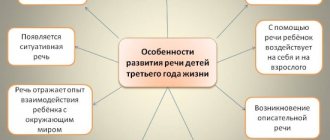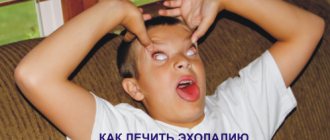adminUncategorized My child has a lisp - a frequent phrase running through the minds of parents. The main thing to understand here is that there is nothing wrong with this.
Lisp is a speech disorder, a type of sound pronunciation disorder. Manifests itself in the difficulty of reproducing whistling and hissing sounds. Often the defect disappears at the age of five years, after the development of the articulatory apparatus. But there is no guarantee of this. Therefore, when a child has a strong lisp, it is worth starting exercises to develop the speech organs.
What is stuttering
Medicine defines the problem as a speech disorder in which a person often repeats certain words or syllables, pronounces individual sounds in a drawn-out manner, without being able to pronounce them fully. Smoothness, rhythm, and tempo of pronunciation of phrases suffer. Doctors define the disorder by the term “logoneurosis.” According to statistics, it occurs in approximately 2-3% of people, that is, quite common.
Physiological reasons include spasms and convulsions of the muscles responsible for speaking. These disturbances negatively affect breathing, the strength and pitch of spoken sounds. The physiology of this process is similar to hiccups.
At what age does the problem appear?
Most often, a child encounters stuttering at the age of 3-4, when the speech apparatus and psyche are formed. However, logoneurosis can manifest itself at a later age - up to adolescence. The occurrence of a problem in adulthood is an extremely rare occurrence, as it is associated with the formation of the nervous system and speech function of the brain. And this period occurs at the age of 3-6 years. It is noteworthy that the disorder occurs much more often in boys, since the cerebral hemisphere responsible for speech develops more slowly in them.
Causes of lisp
Why do people lisp? What are the causes of a lisp?
It can be:
- Disturbances in the functioning of the speech apparatus, for example, atony of the tongue or an undeveloped frenulum. As a result, articulation fails and sounds are distorted.
- Malocclusion and dental problems. The absence of front teeth makes speech whistling, and it is not possible to clearly pronounce the sounds “ch”, “sch”, “zh”, “sh”.
- Severe stress and prolonged nervous tension. In this case, muscle tone is disturbed, and this negatively affects the clarity of spoken words.
A sharp fright can cause a child to begin to lisp at the age of 4, although before that he spoke correctly.
Why does a person lisp? The reasons are clear. Then a logical question arises: what to do about it:
- how to remove a lisp;
- how to stop a teenager from lisp;
- How to get rid of a lisp in an adult?
What can cause a child to stutter?
Organic causes
A number of reasons are associated with problems of early development and organic lesions of the nervous system:
- genetic predisposition;
- injuries during childbirth;
- intrauterine development disorders;
- infections that the mother suffered during pregnancy;
- diseases associated with metabolism in a pregnant mother;
- frequent ENT diseases of a child in the first 3 years of life.
In these cases, curing stuttering in a child is problematic. After all, it is caused by physiological abnormalities in the development of the nervous system. Children may have impaired reflexes, a tendency to seizures, and surges in intracranial pressure. Problems can be corrected with the help of medications that are selected by the doctor.
Acquired reasons
Basically, they are associated with stress and neuroses, due to which the child may begin to stutter. Most often this happens at 4-5 years of age, when the nervous system is most susceptible to external factors. Doctors include these:
- strong and frequent quarrels;
- life changes (for example, starting kindergarten);
- unfavorable atmosphere in the family;
- sharp fear;
- excessive intellectual stress;
- emotional turmoil;
- disordered life, child's daily routine.
Often, a child begins to stutter during the period of mastering his native language, when parents begin to intensively engage in its development. The brain does not have time to perceive the entire mass of information, especially if learning a foreign language is also added to the native language. Therefore, during any intellectual activities with your baby, it is important not to overload him. Particular attention should be paid to emotional children.
According to statistics, more than 80% of stuttering cases have acquired causes. Such children do not have any physiological abnormalities, and speech disorders can be corrected quite well.
How to stop a child from peeing in bed
To begin with, understand whether there are serious reasons for concern and, in any case, contact a specialist. It is important not to make diagnoses and treatment by eye, but to identify the cause. The success of treatment depends on this. This will require research, analysis and tests.
More often, enuresis has neuropsychological roots. The simplest thing parents can do in this case is to understand their child and pay attention to the situation within the family. Perhaps night urination is an attempt by the child to draw attention to himself. This phenomenon occurs in hyperactive children or children with attention deficit disorder.
Support from parents is very important in terms of suggestions, open conversations and psychological assistance to their child, no matter what age he is.
How to help a child
- Give the child sedatives and sedatives to reduce his daily activity and improve his psycho-emotional state, relieve
- stress and tension. Suitable preparations include motherwort tincture (necessarily diluted in drinking water according to the recommended dosage), tenoten for children, Magne B6, Edas-306 Passambra, Nervohel, Glycine.
- Introduce a drinking regime. Limit the amount of liquid consumed during the day and stop taking liquid food and water after 18.00.
- Organize the correct daily routine. The baby should go to bed no later than 21.00
- Organize sleep hygiene. Mandatory water procedures. It would be good if it was a bath with herbal infusions. Mandatory absence of gadgets and TV an hour before bedtime. It is important to organize a quiet evening leisure time immediately before bed, but an active evening - walks, outdoor games.
- Try the night waking method. Take your child to the toilet by the hour. In this case, it is very important not to just take the baby and put him on the potty or toilet in order to leave the bed dry. And it is important to wake up the child so that he does this consciously! Regular awakenings accompanied by going to the toilet will quickly teach the child to do it on his own.
- Try to devote more time to your child and be sure to monitor your emotional state. Children are sensitive to their parents like no other.
- Be sure to pay attention to your child and reassure him if he wakes up dry. It is important here to do this without fanaticism and not to put the achievement on a pedestal.
What parents shouldn't do
- Don't lecture your child and don't shame him. Just understand that he is not doing this intentionally or on purpose. The baby may not even realize that he peed in the bed.
- Don’t put a feeling of guilt into it and don’t scold him for the ruined sheet or for your nerves. Your nerves are your nerves and only you can spoil them. But without this, the existing feeling of guilt and shame can alienate the child from his parents, exacerbating internal complexes.
- Apply punishments. For example, you won’t get it, or you won’t watch cartoons, or you won’t go for a walk, or you won’t get sweets because you did it in bed. This is how the child develops extremely negative attitudes and connections: in order to be good, I must do this or I am not good enough to be loved. This will be very harmful in the future. The child should feel unconditional love and support from adults.
- Let it take its course. Despite the fact that the norm for enuresis is the age of 5-6 years, you cannot give up in the hope that it will go away on its own. By spending more time with your child, you will understand whether he has complaints and physical discomfort, how often night incidents occur and how the child behaves. You shouldn’t panic, but you shouldn’t leave it “as is” either. If you have any concerns about nighttime urination, you should take action and seek professional help.
- Deprive a child of childhood and burden the child with activities, clubs and sections, creating pressure of adult responsibility on the fragile child’s psyche. Everything has its time. Constant stress, a strict daily routine and lack of time and opportunity to fully meet the child's needs can provoke enuresis. So, in pursuit of public opinion and standards, take care of your children, who once chose you!
How can you tell if your child has a speech disorder?
The easiest way to treat stuttering is when it is discovered at a very early stage, before the brain has yet “fixed” the speech defect, before it turns into a reflex and affects the child’s psyche. Therefore, when he turns 3-4 years old, we recommend paying attention to the following points:
- when pronouncing phrases, the child stops, breathes quickly, as if gathering strength;
- stammers, repeats the same syllables and words;
- pronounces additional sounds before the phrase (i, a, e);
- refuses to speak at all, becomes abruptly silent;
- becomes withdrawn.
Any of these symptoms is a reason to consult a doctor. The sooner you do this, the faster and without consequences the problem will be solved.
The earlier the better!
It is believed that if a child has a lisp before the age of five, this should not be a cause for concern. It might even seem cute. Now imagine that this is a 16-year-old girl at school, an adult woman at work. Most likely, she will not be comfortable communicating with people and making acquaintances. The same goes for men. A lisp affects your future lifestyle and prevents you from achieving your goals. A person is simply embarrassed to speak, express opinions and ideas.
It is naive to expect that the defect will disappear on its own by 5-6 years. If this does not happen, too much falls on the child. After all, he is going to go to school. Then the children’s normal day is interrupted by visits to dentists, speech therapists, speech pathologists and countless home workouts. There are all the prerequisites for emotional exhaustion: stress, overload, demands from adults. The child may be afraid that his peers will laugh at him. The sooner treatment begins, the better.
Which doctor treats stuttering?
Speech therapist
If no physiological abnormalities are found in the child, the next step is to contact a speech therapist. This specialist specializes in the correction of speech defects and will help the child learn to correctly pronounce sounds that he cannot comprehend. The speech therapist will determine the nature of stuttering - it can be tonic (drawn-out main sounds) and clonic (stutter on consonants). And then he will choose the optimal treatment method.
- It will teach you to breathe evenly so that your breathing does not falter and remains even throughout the entire phrase.
- Place pauses to save speech effort and relieve muscle spasms.
- Form sounds using the speech apparatus: larynx, tongue, teeth, lips.
The specialist works to ensure that the baby overcomes the weakness of the articulatory (speech) apparatus. To do this, the speech therapist will develop certain muscles, for example, the larynx, neck.
Psychologist
However, in most cases, its work alone is not enough. The causes of stuttering are inextricably linked with psychological problems. They need to be corrected no less than speech. Therefore, we recommend that you also contact a psychologist. Visits to this specialist may be even more effective than visits to a speech therapist.
Muscle spasms are often associated with nervous tension and an inability to relax emotionally. Therefore, this doctor will work with a stuttering child in the following areas:
- Teaches you how to behave competently in stressful situations.
- Relax and rest.
- Control your emotions.
- Overcome your fears.
- Contact with peers.
- Express yourself through creativity and communication.
There are a huge variety of methods for psychologists to work with children who stutter. For kids, this may be the development of fine motor skills, for older children - listening to recordings of their own speech with its subsequent correction.
Diagnostics
At the first manifestation of symptoms of a lisp, you should contact a speech therapist, who will assess the degree of development of the pathology and show you how to learn to perform the exercises that form the basis of the correction course. During the inspection, the specialist records the following points:
- the way the patient pronounces sounds;
- features of the functioning of auditory and visual channels of information perception;
- work of the articulatory apparatus;
- psychospeech development of the patient;
- writing and reading skills;
- memory quality;
- literacy in speech construction.
Depending on the reasons that provoked the occurrence of deviations, the patient may be referred to an appointment with a dentist, surgeon or otolaryngologist.
What should parents do at home?
It is ineffective to cure logoneurosis without the help of parents at home, since the main support should come from them. Therefore, get ready for the fact that you will also have to contact a psychologist and learn from him. To correct psychological problems in a child, you need to change your daily routine and lifestyle at home. The best way to prevent stuttering is to avoid situations that make it worse.
Mode
Organize your daily routine so that periods of intellectual and emotional stress alternate with proper rest and relaxation.
Dream
Children must sleep at least 8 hours a day, so you need to organize your daily life, home space, and sound atmosphere in such a way as to ensure this minimum.
Intonation
The baby should feel the confidence and calmness coming from the parents, so you need to address him slowly, quietly, calmly, without interrupting him. It is important to explain to loved ones that this is exactly what needs to be done.
Praise
Develop your baby's self-confidence by praising him for any success. Create situations in which he could show his best side. However, praise for success should not be confused with pampering.
Situation
In family relationships, quarrels should remain prohibited. It is impossible to cure a child and prevent stuttering in an aggressive and tense atmosphere. The same applies to visiting noisy companies or places.
Leisure
Limit watching programs, movies, cartoons or games that cause emotional overstimulation. Leisure should be calm, aimed at developing creative abilities.
Communication
Gradually and delicately expand your child's social circle by inviting him to visit public places that do not evoke strong emotions. Introduce him to interesting people. They will help him adapt to the outside world.
Activity
Dosed physical activity has a positive effect on the nervous system, as well as muscle development. Therefore, physical education, swimming, running, just walking, playing in the fresh air should become the norm.
Restrictions
Under no circumstances use punishments that can have a negative impact on children's emotions (punishments should also be calm, no matter what offense the child commits). It is strictly forbidden to leave a child alone in a dark room.
Exercises to prevent lisps in children
Relax the muscles of the tongue. You need to lick your upper lip, moving from top to bottom, then relax your tongue. Now say the “difficult” sounds. Perform the steps several times in this order. First, do this together with your child - you need to set an example.
"Naughty tongue." Children love this exercise very much. They do it unconsciously from childhood, just by playing. Therefore, make sure you do it correctly. Imagine that your tongue is a smooth spatula, which you need to place on your lower lip and speak like a bully “la-la-la.” In this case, the lip should not bend.
"Pancake." This is a massage exercise. Let the child imagine that the tongue is a pancake that needs to be spread on the lower teeth, sticking out a little forward. Now, lightly bite the tip with our front teeth. It was as if he wanted to tell a secret and changed his mind. After this exercise, the tongue should rest.
"Cup". It’s good if it follows the “pancake”, because it tastes better with tea. This way, your child will not forget the sequence of classes. You need to fix your jaw as if it were frozen. Now, without sticking out your tongue, you need to give it the shape of a cup, lifting the edges and the tip up. In this position, try to pronounce the letter "z". Don't be discouraged if you hear the letter "z" instead - this is normal.
What should adults say?
To prevent relapses of speech disorders (and they may well occur), you as parents need to change or carefully monitor your own speech. This applies to your conversations with each other. Children actively perceive the conversation around them and unconsciously imitate it:
- Speak clearly, intelligibly, without mistakes and without rushing.
- Try to pronounce the phrase a little slower than usual.
- Avoid complex words that are incomprehensible to the baby.
- Various “scary” topics of conversation are taboo.
- It is not recommended to speak in syllables or sing phrases.
Try to get your baby to make friends with balanced children who have well-developed speech. If his speech activity is too high, artificially limit it by giving him the opportunity to silently play alone with himself for some time. Try to get your child to listen more than talk.
What to do to get rid of stuttering
Many celebrities have overcome stuttering. It is now difficult to believe that Elvis Presley, Bruce Willis, and Winston Churchill suffered from this defect. You can get rid of it forever. Your child can do this, no matter what speech defect he or she has. However, this requires serious effort, perseverance, and patience.
Here are the elements on which your success should rest:
- Emotional calm.
- Correct speech construction.
- Organization of the child's daily life.
- Thoughtful daily routine.
- Regular sessions with a speech therapist and psychologist.
The main thing is to practice regularly and not lose control of the problem.
Correction methods
The problem is solvable. But we have to try!
If it is quite simple for a child to correct a lisp due to the fact that the articulatory apparatus is soft and pliable, then with age some muscles are in excessive tone, while others, on the contrary, atrophy. And solving the problem: how to remove a lisp in an adult becomes more difficult.
And yet, how not to lisp? Here are some tips on how to get rid of a lisp in your child.
Exercises to develop the articulatory apparatus
In children, speech impairment may go away spontaneously by the age of 7, but it won’t hurt to show the child to a specialist in time.
Due to a lisp, which becomes a source of stress, a person’s quality of life decreases. Older children, and especially teenagers, become withdrawn and avoid communication because they cannot clearly express their thoughts.








